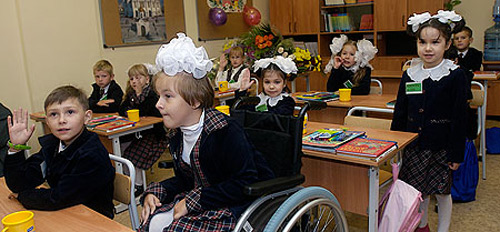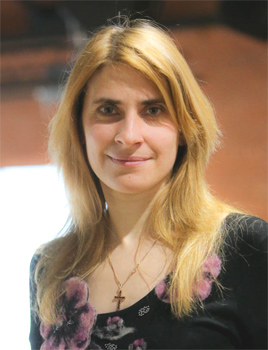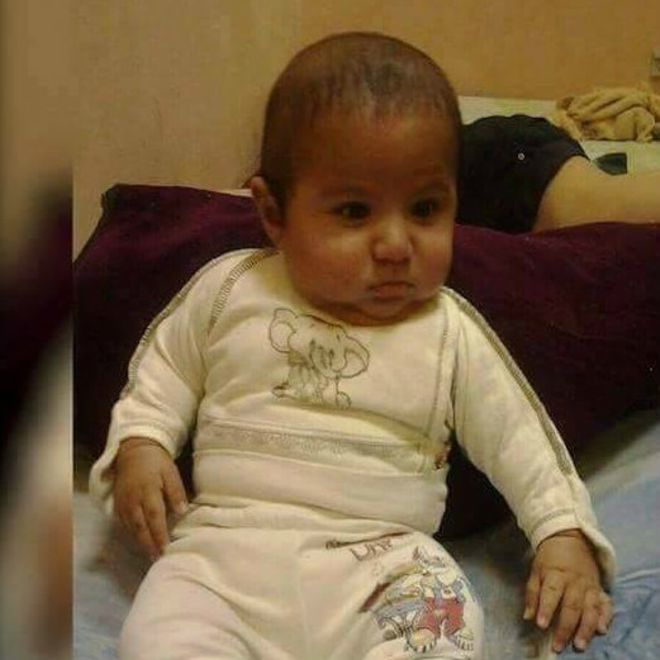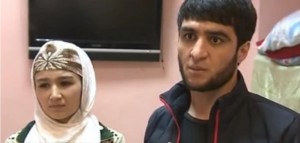This week in the limelight of Russian media there were three reports critical of the moral outlook of the modern Russian society.
The first was about the events in a Siberian city of Krasnoyarsk. The activists of the city created a program of inclusive education of children with disabilities and healthy children. In most countries of the world such practices have already existed for forty years. In Russia, the first attempts to introduce such approach were made five year ago. The government is closing special schools for children with disabilities; nevertheless, opening of special “inclusive” schools meets with a lot of resistance.
According to UNESCO estimates, Russia has about two million children in need of a special educational approach, and according to the Russian Ministry of Health, the number of such children is growing yearly by 4-5%.
Krasnoyarsk activists started arranging a space for one of the first “inclusive” kindergarten on the first floor of a residential building. The construction of a rampant to one of the doors to the building triggered a real rebellion of its residents. The residents, mostly representatives of middle class, demanded to stop organizing such kindergarten in their neighborhood. They didn’t want “to see sick children every day”. They thought that it would hurt their and their children’s feelings.
A Krasnoyarsk activist, a psychologist Nadezhda Bolsunovskaia told a correspondent of newslab.ru:
“From time immemorial a person with disability is seen in Russia as a creature from another planet. Going out of his home, he finds himself in a strange, alien world. And he is not different from anyone else. The goal of all of our projects is to make equal opportunities for all people without exception in the city of Krasnoyarsk. We want to help the people with disabilities to enter into our world and to communicate on an equal footing with others. We try to give an opportunity to provide Krasnoyarsk with this important inclusive experience with those who are a little different from most.”
Now dozens of activists are working hard to approach every resident of the huge housing complex to convince them to change their decision. The residents are trying hard to avoid these conversations. Nobody knows what will be the outcome of the confrontation.
Meanwhile in a couple of days after Krasnoyarsk event similar incidents happened in Moscow.
A fourth grade teacher in one of the Moscow schools is a single mother with a six year old daughter with Down syndrome. The special kindergartens for such children are closing in Russia and the woman has no money to pay for a daylong babysitter. So she was taking her daughter along to her place of work. The little girl was sitting quietly in classes and never interrupted lessons. School administration knew about it and cooperated, as they had no ability to solve the problem in any other way.
The parents of the children of one of the classes, well off people, had decided to order an expensive fancy schoolbook with photographs of the class. The photographer by mistake included in the book a picture where along with the classmates the little girl with Down syndrome could be seen. Parents were outraged. They didn’t want to see this “ugly” girl near their “beautiful” children. They demanded to republish the book. School administration readily agreed to pick up the expense. The shocked teacher left her job, took her daughter home and is not answering to calls of numerous reporters. The “insulted” parents also refuse to answer to questions of the press.
Here is how the two events described above were commented upon by Nikolai Svanidze, a historian and one of the most prominent Russian democratic journalists:
“That’s basically the same thing that occurred after the WWII: hundreds of thousands of disabled people – the invalids of war, were taken from the big cities and isolated, in order not to let other people to see the effects of war. Why do they need to see how these legless people move about on their wooden platforms, shoving the pavement with their wooden blocks (there were no wheelchairs in Russia in 1940s – S. T.), getting drunk on beer, fighting with one another.. One starts pitying these unfortunate people; their looks evoke feeling that all is not good in our country, that there is a human disaster.
“No, we want to feel that everything is perfect and beautiful in Russia. That’s the same thing here: all those around us should be perfect and beautiful. Our children shouldn’t see invalids.
“It is, in fact, absolute ignorance in regard to the proper upbringing of children, because children are educated to grow up blind, deaf and cruel.”
The biggest of the three scandals of the week was a scandal, which was caused by a different type of intolerance, in this case – ethnical.
About one million of Tajikistan citizens, 25% of all working Tajiks, are employed in Russia. Most of Tajik migrant workers are seasonal workers, usually going back home in winter and returning in early spring to work in Russia. Funds transferred by migrants to their homeland account for 40% of the economy of Tajikistan.
Human rights organizations have reported numerous violations of the rights of Tajik labor migrants in Russia. Every year about 150-200 Tajik migrants are missing in Russia, and from 300 to 600 coffins of Tajik migrant workers are sent back home every year. Tajiks die in Russia from illnesses, accidents and murders, including at the hands of Russian ultranationalists. All that is well known, but these facts never triggered an international scandal. What happened on October 14 did it.
Umarali Nazarov, the five month old and only son of a Tajik migrant family, died in St. Petersburg a day after his parents were briefly detained for allegedly violating migration rules. The police officers, in spite of the loud protests of the child’s parents, separated the child from the couple upon their arrest and sent the baby to a special center for collecting of parentless children. They refused to return the child to parents, when they were released five hours after arrest. The parents insist their child was healthy and didn’t suffer from any illnesses. They were given the child’s body a day later. Police said the child had respiratory problems.
Tajikistan has demanded Russian authorities to probe the incident, which has sparked angry protests by dozens of Tajiks in Moscow. But what is most important in my opinion is the death of the child along with the two other events described above, caused an outrage in Russian social media.







This was done to epileptics during the 1950’s in the western world for it was medically thought they were possessed by the devil.
We have a long way to go to provide human rights and acceptance of all people. How very sad for the children and their parents.
The Russian bureaucracy & people are a strongly inhumane civilization believing in an only the strong survive mentality w/out regard for the weaker & less fortunate & infirm in their society. Sort of like the USA is turning into now. And even w/ Christianity there is no guarantee of compassion, empathy or moral obligation or nobles oblige that former generations embraced
As of right now all five comments including yours are from the US, which is one country which is not guilty of the things Russia is doing with regard to people with disabilities. Russia has enough people shilling for it and is not in need of any more.
EDITOR: Suggest you re-read the article.